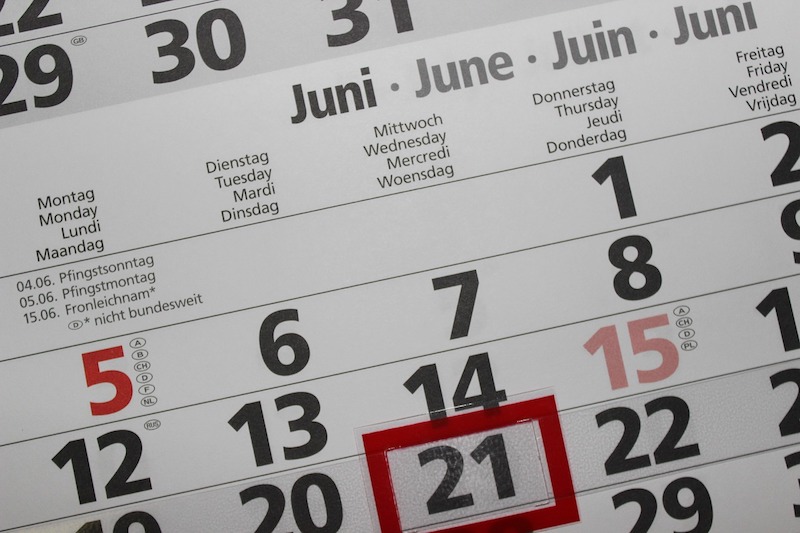The levels of our hormones changes with each menstrual phase. Many of us have rather negative relationships with our period; often relating the cycle to PMS - mood swings, fatigue, breast tenderness, bloating, food & sugar cravings - and inconvenience during the time of the month.
Growing up with cramps and pain was (and perhaps, still is) taken to be normal. Ingesting pain killers, old advice to not drink 'cooling' stuff , herbs from Traditional Chinese Medicine (TCM), Medical Certificate leave (MC) from school, exemption from physical activity, etc.
Menses = cramps = pain = negative.
But, what if you can understand the innate wisdom of your hormone anatomy and make better informed choices about your body, work and life - to better manage your schedules and live better as a busy woman?
Biohacking your period = efficiency / performance = feel good = positive.
Would you like to give it a shot? ;)
Women go through four distinct hormonal trends every month (just like the moon, which also has four phases!). Some metrics we can track like our body temperature, resting respiratory breathing rates, heart rate variability (HRV) also varies in each phase. As a result, certain phases may be more suitable for some exercises, brainwork, etc.
Follicular Phase
approximately the 1st week after menstruation (average cycle duration: 28 days)
With a gradual increase in Estrogen and Follicle Stimulating Hormone (FSH), the first week of your cycle is perfect for planning & beginnings, as a gentle increase in estrogen and FSH stimulate creativity. What intention would you like to set? What do you want more in your life?
Ovulation
approximately the 2nd week after menstruation
Testosterone levels rise, driving desire, then drops around ovulation. Make use of that stamina: hit your favorite HIIT classes and obtain optimal strength training benefits by scheduling highest training loads to pre-ovulatory period. Estrogen levels dominate in this phase, with decreasing body temperature; expect the lowest point around ovulation.
Luteal
approximately the 3rd week after menstruation
If the egg has not been fertilized, estrogen continues to fall, cycling back to menstruation. Progesterone increases in this case, with body temperature rising and peaking around mid phase, dropping again towards the end of the cycle. A higher resting heart rate, lower HRV and body temperature is also associated with and during the post-ovulatory phase.
PMS is common - but not entirely necessary. This may be caused by hormone imbalances, a change in serotonin levels or other factors such as genetics, nutrition, environmental pollutants or cycle-related illnesses such as endometriosis.
Menstrual
A decrease in hormone levels result in lower energy levels - a good time to slow down and evaluate how you've done this month at work and at home. Also a good time to lower the intensity of workouts so your body isn't overwhelmed. You may feel low, anti-social and foggy. Digestion can be sensitive too, which at times can lead to loose stools and frequent urination.
Needless to say, everyone's body is different and unique; a lot of research is still being done in this area too. Do you track your period? Do you know why you feel crappy at times and are not performing at your peak? Or do you simply brush off all the symptoms?
Why not keep a diary for your next cycle, or note how you are feeling each week and see if it corresponds to the above? That extra mindfulness and awareness will help you to 'listen' to your body better. You'll then be able to recognise when you can realistically push yourself harder OR if you're just being lazy ;).
When we connect our brains and bodies, we start to supercharge our well-being. Harness your energy better, stay motivated and feel great!

What exactly do these hormones do?
Oestrogen (or Estrogen): The one that is responsible for our curves growing up. It affects the health of our skin & bones and can also protect us against heart disease. Also responsible for regulating our menstrual cycle.
Progesterone: One of the female sex hormones produced by the ovaries and adrenal glands. Crucial in maintaining a pregnancy and regulating the monthly menstrual cycle.
Should you be on birth contraceptives, you're likely to have elevated levels of estrogen and progesterone.
Testosterone: A male hormone produced by the ovaries. Helps to regulate sex drive, energy levels and mental state.

So, you wanna track your cycle? Try...
Flo
Using machine learning to reliably predict menstruation and ovulation, the app's simple to use calendar allows you to log how you are feeling, your symptoms, libido, and menstruation flow. It can also be used to track your sleep, water consumption, and exercise. Learn more about your body and get personalised health insights via the insights dashboard.
Clue
Ranked as the top period and ovulation tracking app by the Obstetrics & Gynaecology journal, Clue helps users to identify unique patterns in their menstrual cycle. You'd also be able to track your mood, overall health and exercise. The app's unique algorithm learns from the data that you input, so the more you use Clue, the smarter it will become.
Glow
Tracks your period and record your symptoms, mood, sexual activity, and medications. You can chart your menstrual and fertility data, set medication, birth control, and ovulation reminders, as well as keep track of over 40 different health signals. With all that data, the app can forecast periods, ovulation and its predictions become more accurate over time. It can help women who are avoiding or attempting pregnancy, and also those who are undergoing fertility treatments such as in-vitro fertilization (IVF).
Eve
With Eve, you can review past periods, forecast future periods & ovulation, and predict your chances of pregnancy. You can also log your moods, PMS symptoms and visualise your health data in charts. Eve also provides access to a community where you can ask about anything at all. If you are concerned about anything at all, ask the community. No subject is off limits!
Empower yourself by better understanding and getting in sync with your body. Use the exploration as an opportunity to connect and empathize with other women too. Be kind on yourselves!
Do you find this article useful? What are some PMS symptoms you'd like to solve? Drop us a note at [email protected].

